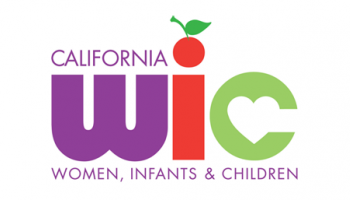Heading 2
Lorem ipsum dolor sit amet, consectetur adipisicing elit. Nostrum minus ea suscipit porro alias corporis libero at. Perferendis omnis, veniam nemo beatae vel? Tempora numquam a repellat eaque natus, magnam?
Heading 2
Lorem ipsum dolor sit amet, consectetur adipisicing elit. Autem ipsum mollitia neque, illum illo excepturi, eum incidunt fugit nostrum est, voluptate eaque minima corporis debitis at, dolores ipsam. Quaerat, dolores.
Heading 2
Lorem ipsum dolor sit amet, consectetur adipisicing elit. Autem ipsum mollitia neque, illum illo excepturi, eum incidunt fugit nostrum est, voluptate eaque minima corporis debitis at, dolores ipsam. Quaerat, dolores.
Heading 2
Lorem ipsum dolor sit amet, consectetur adipisicing elit. Autem ipsum mollitia neque, illum illo excepturi, eum incidunt fugit nostrum est, voluptate eaque minima corporis debitis at, dolores ipsam. Quaerat, dolores.
Heading 2
Lorem ipsum dolor sit amet, consectetur adipisicing elit. Autem ipsum mollitia neque, illum illo excepturi, eum incidunt fugit nostrum est, voluptate eaque minima corporis debitis at, dolores ipsam. Quaerat, dolores.
Cashiers smiled as they welcomed customers to the Foods Co supermarket in East Oakland during the much-anticipated opening of the 75,000-square-foot store just over a month ago. Grocers showed off stacks of colorful fresh fruits and vegetables, the kind of nutritious foods residents said were impossible to find on the liquor-store shelves that were previously their only neighborhood option.
Then the Foods Co grudgingly began turning away some of their neediest shoppers.
The celebrated new store – like many others across the state – is caught up in California’s drive to clean up a federally funded program it administers, the Special Supplemental Nutrition Program for Women, Infants, and Children, which gives low-income pregnant women and new moms vouchers to pay for specific healthful food items, such as low-fat milk, eggs and fresh produce.
Stores must apply for state permission to accept the WIC vouchers from customers. But for the past three years, the federal government has placed a moratorium on new store applications in California because the state has been unable to adequately monitor existing stores amid complaints of price-gouging. Among the complaints were some that vendors offered WIC participants questionable incentives to shop at their stores and then inflated the price of WIC items charged to the state.
Profit-driven vendors reaped $90 million in unnecessarily high reimbursements in one year alone – a bill footed by taxpayers – according to the California Department of Public Health, which oversees the state’s WIC program. The troublesome vendors mostly consisted of small stores – like liquor stores and corner markets – which flooded the state with applications to become WIC vendors. Between 2007 and 2012, state-approved small vendors grew nearly 300 percent to 1,326 stores selling food to WIC customers.
Now, some grocers say, the lengthy process the state has undergone to shed bad apples in the food program has them hesitant to open new stores in California, particularly in poor communities where many residents rely on WIC vouchers.
In East Oakland, shoppers looking for deals at Foods Co sometimes end up having to use their WIC vouchers at higher-priced places, like the Chico’s Discount Liquor store 3 miles away.
“It will cost us all more money when people use their WIC vouchers at places like that, and you get less product for your voucher,” said state Sen. Holly Mitchell, a Democrat from Los Angeles who is among the state lawmakers who have pushed for an end to the federal moratorium.
A spokesperson for the U.S. Department of Food and Agriculture‘s Food and Nutrition Services department said California has made “significant progress” in cleaning up the state’s WIC program. As a result, the moratorium could be lifted this summer.
But much remains up in the air.
For a while, it seemed that every store wanted to participate in WIC. And it took California a while to grasp why.
Gaming the system
WIC is designed to supplement the diet of pregnant women and new moms and their young children with specific nutritious foods, such as vitamin C-rich fruit, eggs, milk, cheese and beans.
WIC is intended to create healthy eating habits by providing vouchers for nutritious foods, hosting educational classes and promoting the benefits of breastfeeding, all of which have long-term health benefits.
“You can’t get soda or potato chips” with a WIC voucher, said Laurie True, executive director of the California WIC Association, a nonprofit formed by directors of local WIC agencies. The California WIC Association drew attention to complaints of abuse in the WIC system and supports a moratorium in order to weed it out.
The sharp rise in stores looking to participate in WIC came mostly from small shops, such as liquor stores. “Certain types of store owners figured out how to game the system, and that was driving food costs up,” True said. “There were hundreds of these stores being approved, and the state was on autopilot approving them.”
Customers reported seeing significantly higher prices on milk and other products sold to WIC customers, while cash-paying customers were charged less for the same items.
As California’s economy recovered from the recession, True said the inflated food prices threatened to curtail the number of families WIC could serve.
1.4 million users
California’s WIC program runs on $850 million in federal funds and partners with infant formula manufacturers to receive another $250 million. Each month, food vouchers with a $60 retail value are sent to 1.4 million people enrolled in WIC in California.
As True points out, there is little incentive in the WIC program for participants to bargain-shop. WIC’s vouchers do not have a price affixed to them. Instead, they specify what a person can receive from a participating store, such as low-fat milk, specific brands of cereal like Cheerios or Corn Flakes, and whole grains like corn tortillas or oatmeal.
The store then tells the state the cost of items purchased, although there is a maximum reimbursement rate based on prices at similar stores. When more stores charged the most allowed, that inflated the average prices used when recalculating the maximum reimbursements.
Probing complaints
In 2011, with food prices rising and applications from stores soaring, California imposed a moratorium on new vendors while officials investigated complaints of inflated costs and fraud.
By early 2012, California attempted to lift the moratorium, but USDA officials ordered it to remain in place, saying the state needed better oversight and lower reimbursement rates. The USDA required California to reduce the maximum price small vendors could be reimbursed, an action that True said highlighted the extent of the price-gouging problem.
In the first year, the California’s WIC program saved $90 million.
Cassaundra Peoples and her fiance, Toby Evans, walked into Foods Co in East Oakland for the first time on a recent day and headed straight for the clerk to check the store’s WIC status. It didn’t stop them from shopping, but it did keep them from purchasing milk, produce and bread there.
The couple relies on WIC to feed their 2-year-old granddaughter, Zamiyah Gordon-Evans.
“We only have two carts,” Peoples, who works at the Oakland airport, said as the family walked out of the store. “If they took WIC here, we’d have three. And now we got to stop somewhere to get the WIC (items).”
Evans, who works at a Costco warehouse, said he didn’t understand why the state wouldn’t allow the East Oakland store to accept WIC.
“This is the right neighborhood for it,” he said. “A lot of people here need it.”
Ron Fong, president of the California Grocers Association, said many times customers blame the store for not accepting WIC, which is bad for business. He said it’s not easy for customers, particularly for those who take public transit, to make multiple trips for groceries.
Fong said grocery stores lose 15 to 30 percent of their business when they can’t accept WIC, since many customers buy other products in addition to voucher items.
And that makes grocery store owners hesitant to open new stores in California, particularly in low-income areas.
Eric Lindberg, co-CEO of Grocery Outlet, said his company has slowed its growth in California because of the moratorium.
“The worst part about it is that Grocery Outlet’s proposition is to sell groceries at lower prices than other retail,” Lindberg said.
Melody Gutierrez and Will Kane are San Francisco Chronicle staff writers.
E-mail: [email protected], [email protected]
Twitter: @MelodyGutierrez


